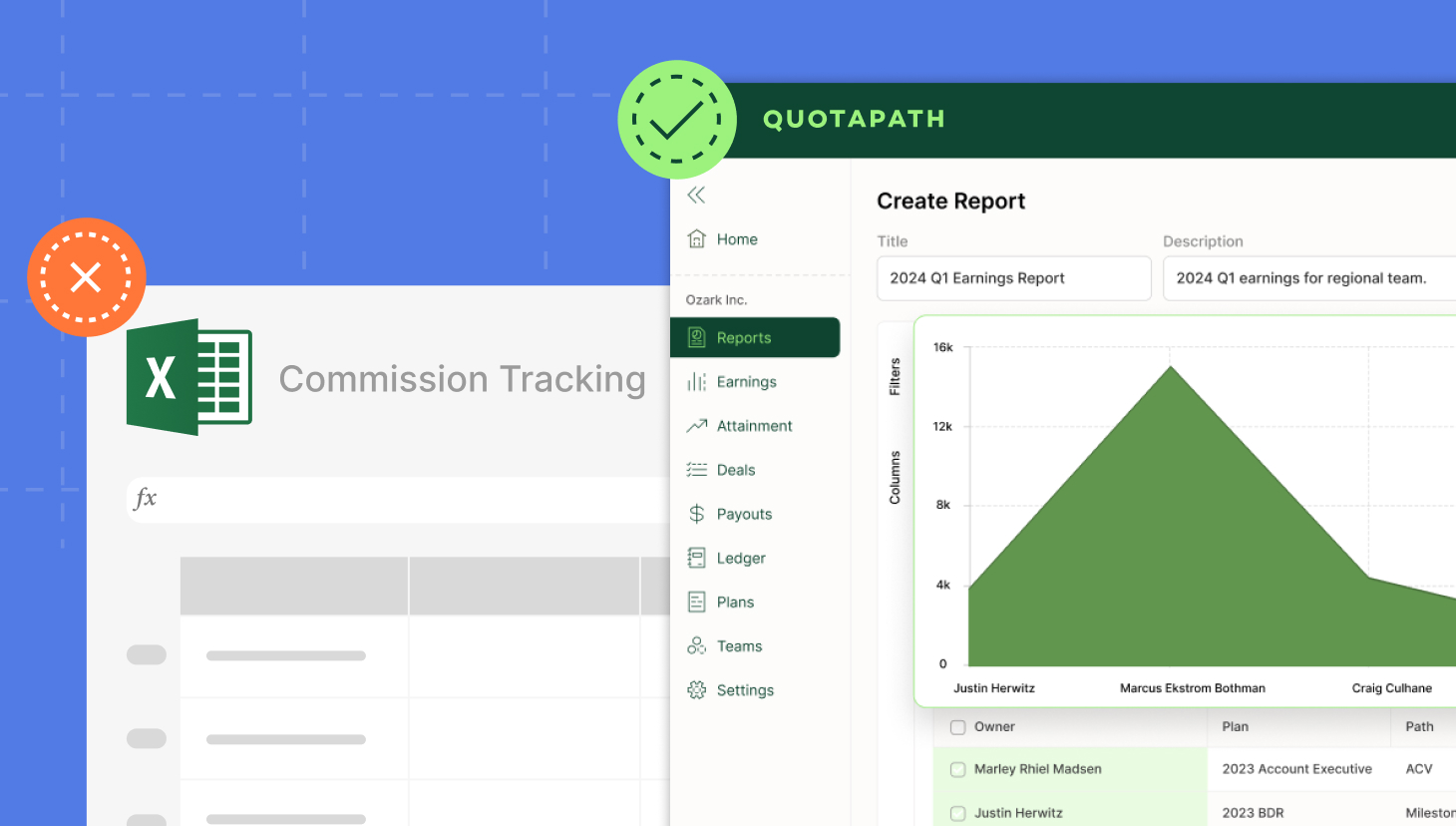Q4 is the final sprint in the annual sales race.
To keep energy and motivation up across their teams, some leaders drop a spiff or kicker. At the same time, other leaders use the final quarter to test possible long-term changes to the following year’s compensation plan.
Regardless of your direction, it’s a good practice to closely monitor key metrics that can inform your compensation strategy and maximize performance throughout Q4.
Below, we highlight which metrics to keep an eye on and offer sales compensation adjustments to help steer your team back on track should it be necessary.

How to Motivate Sales Teams
Revenue leaders reported “failure to motivate reps” as their most challenging issue with comp plans.
Read MoreKey Metrics to Watch
First, to determine if you should adapt your compensation plan, start by focusing on these critical performance metrics:
- Pipeline Velocity: Track how quickly deals move through the sales pipeline. A slowdown might indicate challenges in lead generation or qualification.
- Win Rate: Monitor the percentage of deals closed compared to opportunities created. A declining win rate could signal sales process or product positioning issues.
- Average Deal Size: Analyze the average value of closed deals. If this metric is decreasing, adjusting incentives to prioritize larger deals might be necessary.
- Sales Cycle Length: Track the time it takes to close deals. Increasing sales cycle length could indicate challenges in overcoming objections or securing approvals.
- Quota Attainment: Assess individual and team performance against quotas to identify underperforming areas.
- Sales Rep Productivity: Monitor key performance indicators (KPIs) like calls, emails, and demos to gauge overall efficiency.
- Product Mix: Analyze sales distribution across different product lines or services. This can help identify opportunities for targeted incentives.
By closely monitoring these metrics, you can identify trends and patterns that indicate the need for compensation plan adjustments.
RevOps, sales leaders, and finance teams use our free tool to ensure reps’ on-target earnings and quotas line up with industry standards. Customize plans with accelerators, bonuses, and more, by adjusting 9 variables.
Build a Comp PlanData-Driven Compensation Adjustments
Once you’ve analyzed the key metrics and identified areas for improvement, it’s time to implement targeted compensation adjustments.
Consider the following strategies:
- Accelerators: Introduce short-term incentives for closing deals within a specific timeframe or exceeding sales quotas. A comp plan with an accelerator is a great way to reward overperformance so your reps keep pushing upon hitting their targets.
- Quota Relief: Provide temporary relief for underperforming reps to help them regain momentum. (Here are some other Q4 spiff examples)
- Commission Rate Adjustments: If you’re focused on gross revenue retention, building profitability, or entering a new customer segment, consider increasing commission rates for specific product lines, customer segments, or deal sizes to drive desired sales behaviors.
- Contests and Gamification: Create a sense of competition and reward top performers with additional incentives.
- Spot Bonuses: Offer one-time bonuses for exceptional performance or closing large deals.
Remember, the goal is to motivate your sales team while maintaining a balanced and sustainable compensation plan. However, any adjustment you make comes with a risk—more on these below.
When (and How) to Shorten Sales Cycles
Read MoreRisks Associated with Q4 Compensation Adjustments
While Q4 compensation adjustments can be powerful tools in supporting sales performance management, it’s essential to be aware of potential risks:
- Unintended Consequences: Short-term incentives can sometimes lead to behaviors that negatively impact long-term goals, such as neglecting pipeline development or focusing solely on high-commission deals.
- Increased Costs: Generous accelerators, quota relief, or commission rate adjustments can significantly impact the overall compensation budget.
- Run some initial pressure tests to avoid risking extreme payouts. (You can use QuotaPath to test and predict compensation costs.)
- Decreased Base Pay Value: Overreliance on short-term incentives can diminish the perceived value of base salary and long-term career opportunities.
- Inequity: If not managed carefully, adjustments can create disparities among sales reps, leading to demotivation and turnover.
- Dependency: Excessive use of short-term incentives can create a dependency culture, making it difficult to sustain sales performance without constant motivation.
- Administrative Burden: Implementing and managing complex compensation plans can increase administrative overhead and errors.
By carefully considering these risks and implementing appropriate safeguards, organizations can maximize the benefits of Q4 compensation adjustments while minimizing potential drawbacks.
Mitigating Risks in Q4 Compensation Adjustments
To mitigate the risks above, we recommend the following:
- Clearly communicate the goals and expectations of the adjustment program to the sales team. This helps to prevent misunderstandings and ensure that the desired behaviors are achieved.
- Establish clear and measurable performance metrics to determine eligibility for incentives and evaluate the program’s overall effectiveness.
- Set a clear budget for Q4 compensation adjustments and allocate funds strategically to avoid overspending.
- Balance short-term incentives with long-term goals by incorporating metrics that measure pipeline development and customer satisfaction.
- Ensure that compensation adjustments are applied consistently and fairly across the sales team to prevent morale issues.
- Continuously monitor the impact of compensation adjustments and make necessary modifications to optimize results.
- Consider implementing adjustments in phases to assess their effectiveness before making larger commitments.
- Provide additional training and support to help sales reps achieve their goals and maximize the impact of compensation incentives.
Design, track, and manage variable incentives with QuotaPath. Give your RevOps, finance, and sales teams transparency into sales compensation.
Talk to SalesLeveraging QuotaPath for Optimal Results
Lastly, consider utilizing a sales performance management platform like QuotaPath to effectively implement and manage compensation adjustments.
Our platform provides real-time data and analytics to help you make informed decisions.
With QuotaPath, you can:
- Track key performance indicators and identify trends
- Model different compensation scenarios to assess their impact
- Automate commission calculations and payouts
- Provide sales reps with real-time insights into their performance
- Identify what compensation lever is successful (and what’s not)
- Align comp plans to drive business outcomes
- Adapt and adjust plans when needed
By leveraging QuotaPath, you can streamline the compensation adjustment process and ensure accurate and timely payouts.
Conclusion
Q4 is a critical time to optimize your sales team’s performance. By closely monitoring key metrics and making data-driven compensation adjustments, you can increase motivation, improve sales results, and achieve your revenue goals. QuotaPath can be a valuable tool in this process, providing the insights and automation needed to maximize the impact of your compensation plan.
Are you ready to supercharge your Q4 sales with strategic compensation adjustments? Contact QuotaPath today to learn more about how our platform can help you achieve your goals.



